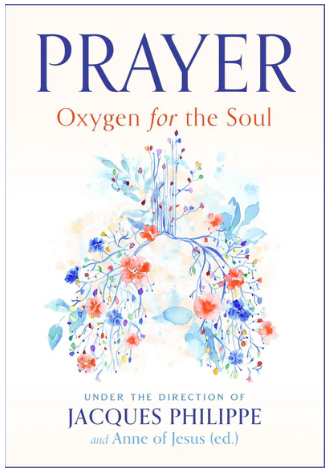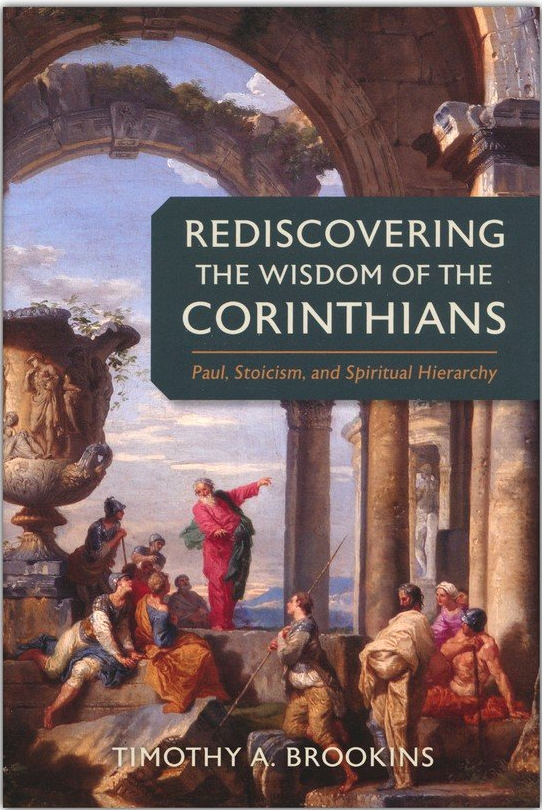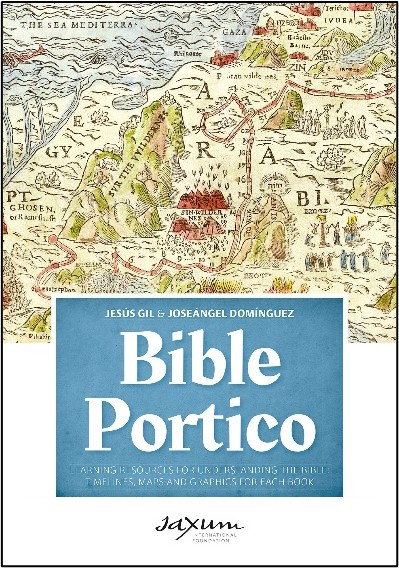THE CATHOLIC REVIEW: Summer Specials: Quick Dishes for Sunny Reading
by Deacon Rick Bauer
Summer is here, and hopefully that means we all have more time to enjoy some good books. Following are six suggestions for those looking to nourish their spiritual life over the next couple of months.
Prayer: Oxygen for the Soul
 “Prayer: Oxygen for the Soul” by Father Jacques Philippe and edited by Anne of Jesus (Scepter Publishers, 2024) is a short book packed with spiritual wisdom. The book is designed to impart practical knowledge to help awaken your desire for personal prayer and truly encounter our living God. Father Philippe explains why we should pray, even when our prayer is full of poverty, pitfalls, and dark nights; how to awaken your thirst for God’s love and recognize his thirst for yours; overcome obstacles to receiving God’s grace; the high-stakes role of prayer in spiritual combat; and strategies for salvaging a “failed” prayer session. We love Father Jacques and welcome this encouragement and rich nourishment in the life of prayer that this short book offers.
“Prayer: Oxygen for the Soul” by Father Jacques Philippe and edited by Anne of Jesus (Scepter Publishers, 2024) is a short book packed with spiritual wisdom. The book is designed to impart practical knowledge to help awaken your desire for personal prayer and truly encounter our living God. Father Philippe explains why we should pray, even when our prayer is full of poverty, pitfalls, and dark nights; how to awaken your thirst for God’s love and recognize his thirst for yours; overcome obstacles to receiving God’s grace; the high-stakes role of prayer in spiritual combat; and strategies for salvaging a “failed” prayer session. We love Father Jacques and welcome this encouragement and rich nourishment in the life of prayer that this short book offers.
Rediscovering the Wisdom of the Corinthians: Paul, Stoicism, and Spiritual Hierarchy
 In this new book by Timothy Brookins (Eerdmans, 2024) readers gain insight into some of the controversies faced by the early Christians. First Corinthians begins with St. Paul admonishing the congregation in Corinth over their internal division and reliance on human wisdom. What exactly occasioned Paul’s warning? Many New Testament scholars have asserted that Paul disapproved of the Corinthians’ infatuation with rhetoric, gifts of the Spirit, etc. In “Rediscovering the Wisdom of the Corinthians: Paul, Stoicism, and Spiritual Hierarchy,” Brookins presents evidence that the Corinthian problem had roots in Stoicism. The wisdom that Paul deprecates is not sophistry, he argues, but a Stoic-inspired pride in which the wise put themselves above believers they considered spiritually underdeveloped. In effect, Paul’s followers saw themselves in spiritual rivalry with other Christians, engendering divisions in the church. This book is more summer study than summer snack, but filling.
In this new book by Timothy Brookins (Eerdmans, 2024) readers gain insight into some of the controversies faced by the early Christians. First Corinthians begins with St. Paul admonishing the congregation in Corinth over their internal division and reliance on human wisdom. What exactly occasioned Paul’s warning? Many New Testament scholars have asserted that Paul disapproved of the Corinthians’ infatuation with rhetoric, gifts of the Spirit, etc. In “Rediscovering the Wisdom of the Corinthians: Paul, Stoicism, and Spiritual Hierarchy,” Brookins presents evidence that the Corinthian problem had roots in Stoicism. The wisdom that Paul deprecates is not sophistry, he argues, but a Stoic-inspired pride in which the wise put themselves above believers they considered spiritually underdeveloped. In effect, Paul’s followers saw themselves in spiritual rivalry with other Christians, engendering divisions in the church. This book is more summer study than summer snack, but filling.
As Kingfishers Catch Fire: Selected and Annotated Poems of Gerard Manley Hopkins
Gerard Manley Hopkins (1844–1889) is widely regarded as one of the greatest poets of the English language. A Jesuit priest known for his sophisticated style, Hopkins wrote poetry that expressed the full range of emotional and spiritual experience, taking readers through trials and triumphs before coming to a place of deep consolation in God.
In “As Kingfishers Catch Fire: Selected Annotated Poems of Gerard Manley Hopkins” (Word on Fire Institute, 2023), Catholic literary scholar Holly Ordway brings us 37 of this Victorian poet’s greatest works, superbly referenced with detailed annotations and Ordway’s own explanations. If you think Hopkins is one Jesuit you will never get, try him again this summer. Ordway is a trusted guide, providing valuable literary and cultural references, illuminating Hopkins’ word choice, and helping readers unpack his complex sentence structure. Featuring classics like “The Windhover” and “God’s Grandeur” but also various lesser-known poems, it is perfect for the seasoned poet and the first-time reader alike, acquainting them with this brilliant mind of the Catholic tradition. Nothing like a glass of iced tea in the Colorado forested shade, reading Hopkins’ “Patience.”
Bible Portico: Learning Resources for Understanding the Bible — Timelines, Maps and Graphics for Each Book
 For catechists and teachers whose summer is still owned by their students, what better resource than one rich in content, artfully arranged, and as beautiful as it is informative. In “Bible Portico: Learning Resources for Understanding the Bible” (Scepter Publishers/ Saxum International, 2022) authors Jesús Gil and Joseángel Domínguez offer visual resources to help understand the Bible better, including timelines of salvation history, from Abraham to the present day; maps for the most significant events in the story of the people of God up to the first expansion of the Church.
For catechists and teachers whose summer is still owned by their students, what better resource than one rich in content, artfully arranged, and as beautiful as it is informative. In “Bible Portico: Learning Resources for Understanding the Bible” (Scepter Publishers/ Saxum International, 2022) authors Jesús Gil and Joseángel Domínguez offer visual resources to help understand the Bible better, including timelines of salvation history, from Abraham to the present day; maps for the most significant events in the story of the people of God up to the first expansion of the Church.
There are delightful graphics explaining each of the books of the Old and New Testaments in the Catholic canon. “Bible Portico” is thus a reference work that complements currently available editions of the Bible, handbooks on Sacred Scripture, Bible study books, religious education and catechism textbooks, and in general any teaching and learning material related to the Word of God. It contains stunning maps, charts, timelines, gathered together from the leading cartographic, photographic, and design professionals in the world. It’s a pity these are not easily reproducible for classroom use or lectures, but teachers have always been resourceful in bringing gifts to their students.
Discipleship
Summer is a good time to revisit authors from ages past. Dietrich Bonhoeffer (1906-1945) was a German Lutheran pastor and theologian who played a central role in the confessing Church during the Nazi period and left his mark as one of the most influential theologians of the 20th century. “Every call of Jesus is a call to death,” Bonhoeffer wrote. His own life ended in martyrdom on April 9, 1945. “Discipleship” (Fortress Press, 2015) is a classic exposition of the Sermon on the Mount, revealing what it means to follow Christ in a modern world beset by a dangerous and criminal government.
I first read “Discipleship” as a young Protestant pastor, and Bonhoeffer’s words singed my heart like fire, even from the first page: “Cheap grace is the mortal enemy of our church. Our struggle today is for costly grace. Cheap grace means grace as bargain-basement goods, cut-rate forgiveness, cut-rate comfort, cut-rate sacrament; grace as the church’s inexhaustible pantry, from which it is doled out by careless hands without hesitation or limit. It is grace without a price, without costs.” This book offers a chance to encounter the realities of following Christ, the one who calls us to die to ourselves. To what end? Only a life in service to him will tell.
The Lord of History: An Essay on the Mystery of History
“Sacred history is not restricted to the contents of the Bible, but is still going on: we are living in sacred history, God still accomplishes his mighty works.” So begins “The Lord of History: An Essay on the Mystery of History” (Cluny Media, 2022) by Jean Daniélou, who was among the leading theologians of the 20th century, Catholic or otherwise. As the publisher states on the book cover, “‘The Lord of History’” is a fitting title to Daniélou’s extended examen of the mystery of history — a sweeping synthesis of Scripture, the Church Fathers, and the living tradition. First, Daniélou sets forth the relationship between sacred and profane history; second, he provides a detailed analysis of the economy of salvation, in which God’s wonders are the primary matter and mover alike; finally, he discusses six particular virtues (courage, poverty, sincerity, zeal, gnosis, and hope) requisite for the Christian to participate fully on ‘the stage and scene of divine action.’” It’s not light reading, but perhaps that is precisely the time to sit at the feet of this master.
(For comments or to suggest a book that might be helpful for Catholics, write Deacon Rick at rbauer@diocs.org.)
1354